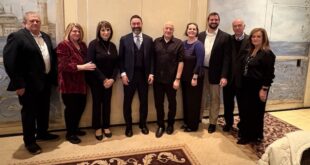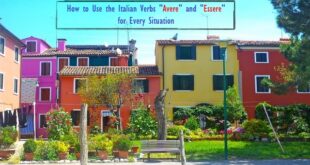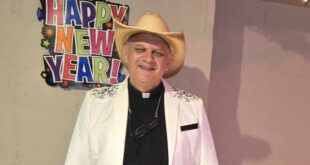By the mid-1950s, people of Italian descent largely owned and managed the Highwood shops that dotted the main streets. Those who owned or worked at the establishments could speak Italian to their customers if needed. Not all, however, were from our region in Italy. They all spoke Italian but in dialects unique to their towns of origin. The Napolitano and Sicilian dialects felt harsh to our ears — they had a staccato sound — whereas the Tuscan dialect had a rhythmic flow whose singsong-sound was more pleasing. Immigrants from Piandelagotti spoke their own dialect, substantially different from even the mountain town nearest to us in Italy. Though located only five kilometers away, that town also had a dialect all its own that was barely understandable in Piandelagotti. But we all were Italian, and our immigrant status linked us together.
Highwood’s small grocery stores were all family run. And more importantly they all extended credit, which proved to be a blessing. My father and other laborers who worked outside construction jobs were dependent on the weather for their income. When it was impossible to work because of the weather, the net of it all was a lower income, which made a credit extension most welcome. The Contri Brothers grocery store was located walking distance from our home. The owners were two brothers from the Abruzzo region. It was a pleasure to be there while my mother shopped just to listen to our native language being spoken throughout the store. It felt like home even though Italy was thousands of miles away. The brothers’ aging mother often sat near the cash register, greeting patrons. Leo, the older brother, manned the butcher department, whereas his brother, Guido, ran the grocery store. I knew nothing of their father. What I remember is that they owned a car that they used to deliver groceries gratis to their customers’ homes.
A block down the street, in the center of town, sat the town’s pharmacy. The proprietors and pharmacists were second-generation Italians. In addition to dispensing medicine, they sold magazines, paperback books, and medical and household items for everyday use — much like Walgreens functions in today’s world, but on a much smaller scale. It also housed a soda counter that took up one side of the store. It was a frequent stop for the neighborhood kids, who would sit at the counter on red vinyl, padded stools. We all spent our nickels and dimes to enjoy a milkshake or a Green River or, my favorite, a cherry phosphate soda.
The majority of store and restaurant owners learned their trade in Italy. The shoe-store owner was a shoemaker from a town that wasn’t far from Piandelagotti. He was a man of very few words. Rather, he opted to go about his daily business by constantly whistling. Many of the plumbing, electrical, carpentry and masonry tradesmen were Italians. There wasn’t a need to go outside the Highwood community for any house repairs. I oddly thought that the hardware-store owner changed his last name by replacing the letter i at the end of it for a y — thinking it would be better for business in America.
The chief of police and his officers were all of Italian descent, as were the volunteer firemen. The police chief was a mountain of a man. His sheer weight, 340 pounds, made his police cruiser ride just inches above ground level as he drove through the town. Chief Ted lived on my block and would give me a nod when he passed our house while walking his dog, Cleo. Even out of uniform he looked like a giant!
The Catholic and public grade schools were accustomed to incorporating Italian-speaking students. Teachers and nuns honed their approaches to ease Italian children into the learning system. At St. James, the teachers were nuns from the Sisters of Loretto, whose order was dedicated to education. None spoke Italian, although some understood a little, but all were quite fluent in hand gestures.
Two non-Italian people I can clearly remember from those early days in Highwood were Joe, a town mechanic and gas pumper at the Phillips 66 station, and the counter person at the Highwood Bakery. Though I don’t recall her name, she always remembered me by our family order of five Bismark doughnuts and five Long Johns. She would start fetching the doughnuts from the display case as soon as she saw me walk in the door. She and her sister, who was the baker, owned the shop. Both were tall, husky women of Swedish descent with large hands and larger hearts. Every once in a while, I’d find an extra Bismark in the sack when I got home. Joe, the mechanic, forever covered in grease and grime, constantly wiping his hands on an oily rag, was originally from southern Illinois. He spoke with a twang. He was the neighborhood go-to guy for repairing flat tires on bicycles. He lived in Highwood in an apartment across from the gas station. I remember him often saying, “I like it here with all you Eye-talians.”
Now, living back in Highwood after 45 years in other locations, I take my daily morning walk through a still-sleeping town. Sometimes I walk free of any specific thoughts or a particular route in mind. More often, I walk with purpose, and I intentionally walk past the places of significance to me. Only one of the houses we lived in remains intact. One is completely torn down and is now an empty lot, and yet another, demolished long ago, has been replaced by a modern, multiunit structure. I stop at each location to reminisce about my life during my time spent there. I recall the different activities, levels of maturity, friends, and family dynamics. I continue my walk past St. James Catholic grade school, now closed.
A sitting park has replaced the asphalt playground; the hard surface has been exchanged for manicured grass. The basketball posts were traded for trees, and the bike rack area now fits a statue of St. Francis of Assisi feeding the birds. After a moment or two on the bench, recalling many school recess happenings and dramas, I continue my walk around the downtown area. The buildings for the most part look the same, but the stores have changed in terms of their owners and the product they sell. My father called Highwood his hometown, even though he was born in Italy and there lived for 35 years. Walking these streets that were once traveled by my family, and by so many Italian immigrants, ignites memories and emotions that keep me firmly connected to the past. I will never leave. I belong here.
 Fra Noi Embrace Your Inner Italian
Fra Noi Embrace Your Inner Italian








Thank you for this. I have such wonderful memories of Highwood. My mother in law’s family lived there in the early 1900s … Romitti. I married a boy from Highland Park, and his Italian family and family friends welcomed me with open arms.
Wonderful memories that I share. We grew up over my grandfather’s house on Grove. The kitchen had a light switch about 18 inches higher than normal. I asked my father about it and he said, “your grandfather’s friend must have run out of conduit.” That was the Highwood way, friends helping friends.
Maury,
This is Penny Miotti one of your St. James classmates. I so enjoyed reading your article and relived the same memories that you shared. Chocolate donuts from the bakery and vanilla phosphates from Bernardi’s. We all cherish the memory of our favorite policeman Ted and his car and tobacco wads. Thanks for the memories and good luck in your writing pursuits.
My brother and I lived in Highwood when we were born in ‘52 & 53. My family moved to Highland Park but we were up in Highwood often because my Grandmother and Nona lived there. I lived in Highwood when I was single and when I had my own family. It’s changed some but it’s a great small town to raise a family in today. The nationalities have changed over the years but it’s always been an Army town and working family town whether it was Irish, Swedish, Italian or Spanish.
Both of my parents families settled in Highwood and my brother, sister and I were raised there. We spent our time with dance lessons from Mary Mazzeta and at the Highwood Recreation Center with Don Skriner. In fact, during my high school years, I served those burgers, cherry cokes and green rivers at the soda fountain at Bernardi’s Pharmacy. I married my Irish husband and he worked as a carpenter in Highwood with all Italian co-workers. My father worked part time on the police force with big chief, Ted. Three of our four daughters were born while we were living there. All these messages stirred up so many wonderful memories!